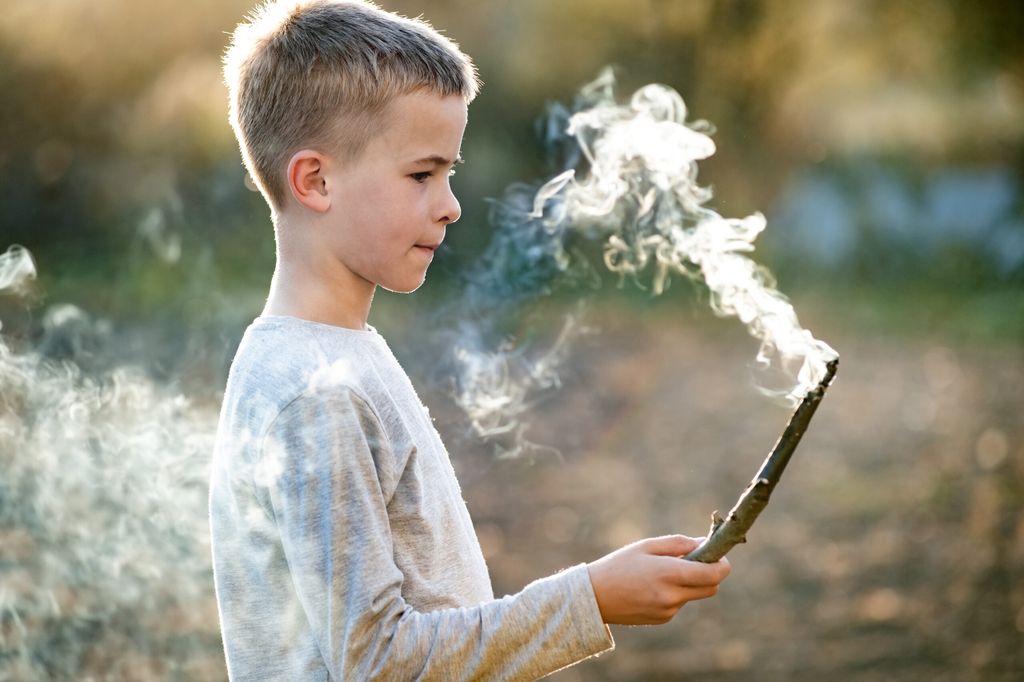What is the Fire Safety Intervention Scheme?

Take action if you are worried about a child who displays Firesetting behaviour. Firesetting should never be ignored, and our team of Prevention Engagement Officers can help reduce the chance of further Firesetting behaviour developing through our education and intervention programmes.
What is Firesetting?
- Most children show a natural interest and curiosity in fire. Even if they do not display any fire-setting behaviour, many children may be fascinated by fire and it is not uncommon for children as young as two to show an interest.
- Unfortunately for some children this interest develops into something more dangerous.
- Fire-setting behaviour can become increasingly serious and lead to injury, damage to property and death.
What is the Firesetting Intervention Scheme
This is a fire-education scheme for children and young people under 17 who have displayed Fire-setting behaviour or have played with fire.
The scheme aims to:
- Raise awareness of the dangers of fire.
- Illustrate the consequences of firesetting behaviour.
- Teach them how to control the trigger factors that lead to firesetting.
- Provides education on how to keep safe from fire in the home and what to do in the event of fire.
The scheme offers fire-safety education for the young person, usually in the home environment by HWFRS Prevention Engagement Officers.
Seven signs of firesetting behaviour
- Small burn holes in carpets or clothes.
- Charred paper/crisp packets in sinks or wastebaskets.
- Matches and lighters hidden in child’s cupboard, drawers and under bed.
- An unusual fascination with fires.
- Unexpected burnt objects in the home or garden.
- Signs of burns on the windowsills.
- The smell of smoke on the child’s clothes or in the home.
What to expect
- After a child has been referred and the parents/guardians have given consent, we will make contact to arrange a convenient time and place to visit the child.
- The help and support we provide is tailored to the child or young person’s behaviour, interests and understanding. We can provide up to two sessions with the child or young person.
- We will also offer support to families by way of a Home Fire-safety Visit which can share advice on fire-safety and fit detection equipment if it is needed.
- Following our visit, we will make a follow-up contact to find out if any more Firesetting behaviour has occurred and offer any further advice or support we can.
- This may also involve signposting families to other agencies who can provide more specialist help or support.
Who can refer?
- Parents/carers
- Schools
- Police
- Social services departments
- Youth offending teams
- Other professionals
Advice for Parents and Careers
- Make sure matches and lighters are stored out of sight and reach of young people and use childproof lighters.
- Never leave children alone in the house, even for short periods of time.
- Search for lighters and/or matches in bedrooms and school bags.
- Keep outbuildings, garden sheds and garages locked to prevent access to flammable items.
- Explain to the child or young person that fire is a tool, not a toy.
- Explain to children that fires can hurt and kill.
- Make a home fire-safety plan with your family and practise it.
- Ensure you have working smoke alarms on each level of your home and test them weekly.
Contact
You can always contact the scheme advisor on 08000321155 or email firesetters@hwfire.org.uk to discuss any concerns